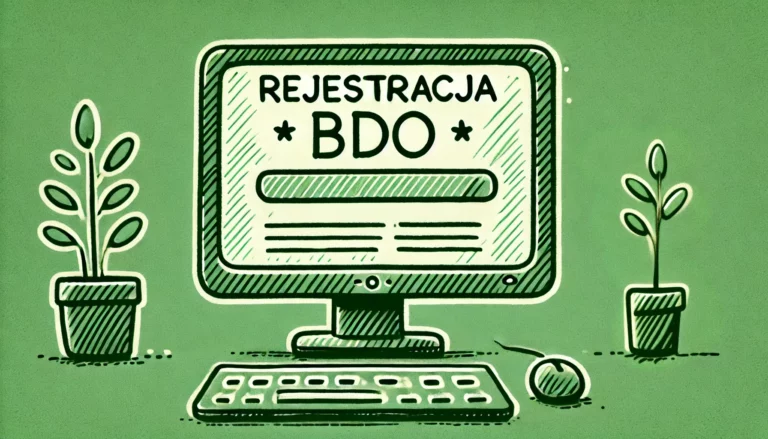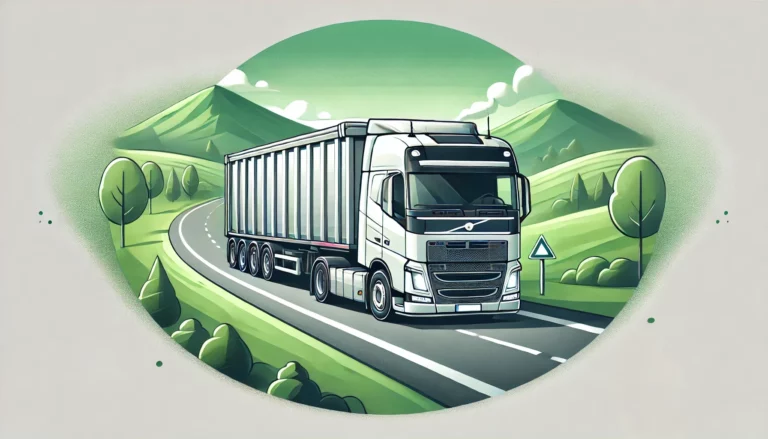International waste transport - what should you watch out for?
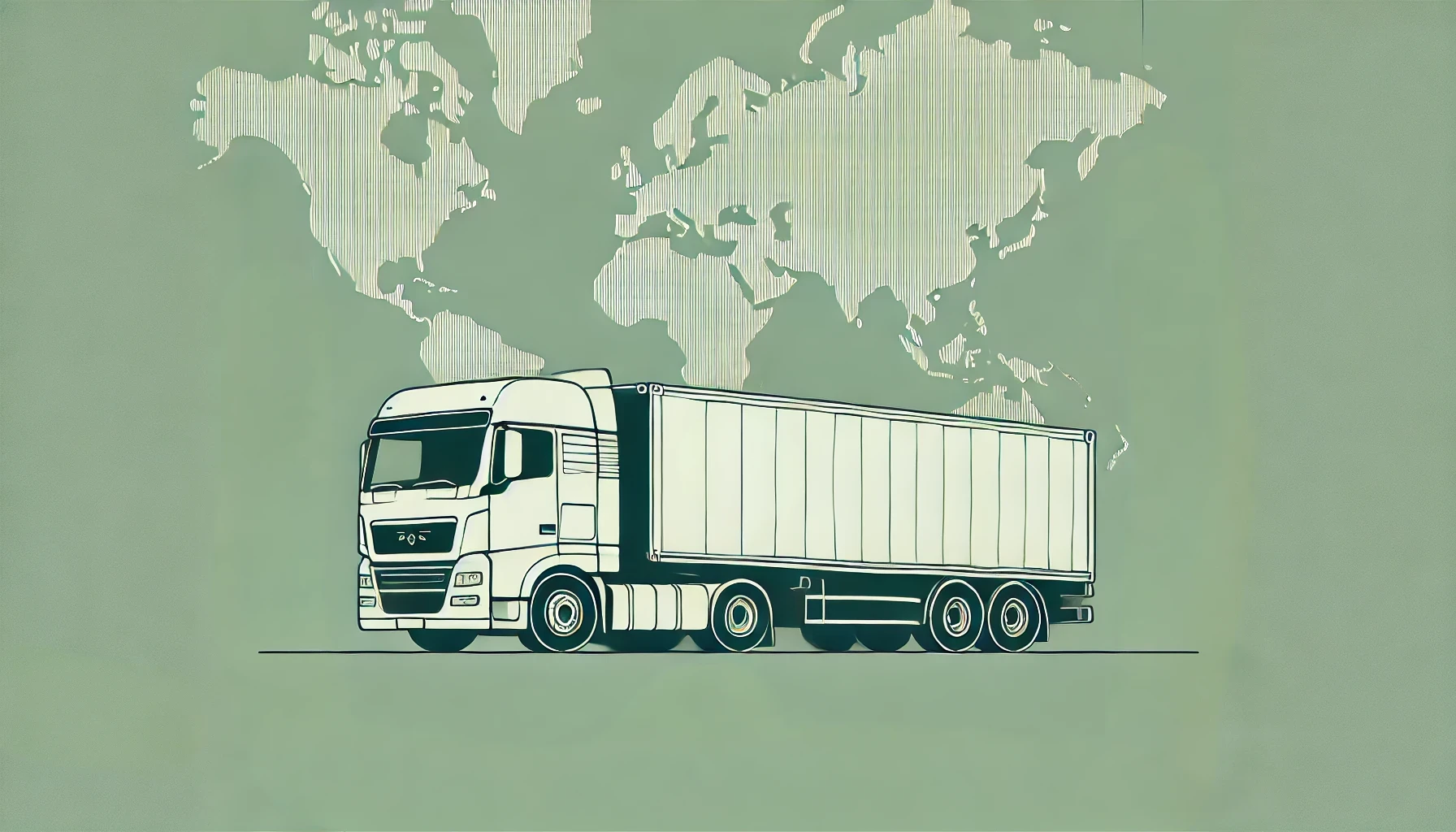
The international transport of waste plays a key role in the European economy, enabling the efficient management and recycling of materials. Improperly implemented, it carries a number of risks that can have serious consequences for the environment, public health and the economy. This article looks at these risks and how they can be avoided.
Contact for waste transport permits
International waste transport in figures
In 2022 The European Union exported 32.1 million tonnes of waste to countries outside the Community, a decrease of 3% compared to the previous year.
The largest recipient of EU waste at the time was Turkey, which took in 12.4 million tonnes, representing 39% of total EU waste exports. The next countries importing waste from the EU were:
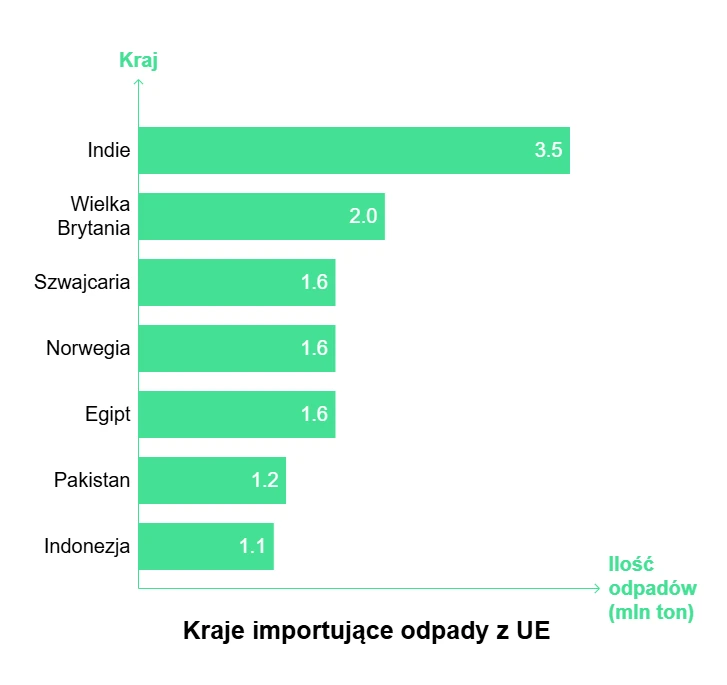
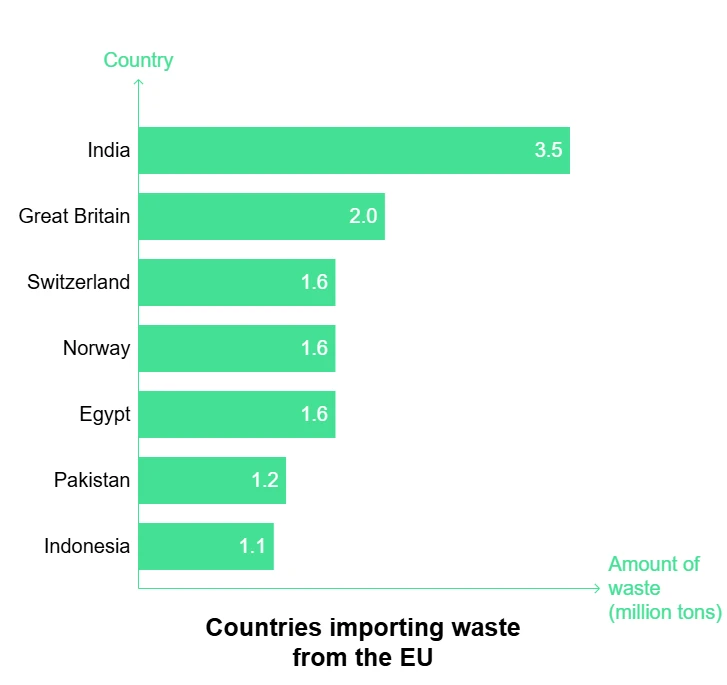
International waste transport - risks
The cross-border shipment of waste is a profitable, but also risky business. Both for the entity that entrusts these materials to the transporter and for the transporter, who must take care of them during transport. Even the slightest misconduct can cost dearly.
That is why so adequate preparation is important: the producer of the waste must secure it well for transport, must choose a reliable carrier and provide him with all the necessary documents. The carrier must secure the goods well, make sure the documents are stamped to confirm the various stages of transport, and must deliver the waste intact to its proper place of management.
But what if the transport is found to be illegal, there is a road accident or environmental pollution?
Illegal transport of waste
Illegal transport of waste poses a serious threat to the environment and human health. One example is a case from last December, when the Lower Silesian National Tax Administration (KAS) foiled an attempt to importing 25 tonnes of illegal waste into Poland from Germany. The driver transported shredded plastics without the required permits and the recipient faces an administrative fine of between PLN 10,000 and PLN 1 million. However, there are many more such situations and they do not only concern our country.
How can this be prevented?
An effective fight against illegal waste shipments starts at the grassroots level. It depends to a large extent on the proper preparation of the designated service personnel, their training and their ability to detect irregularities. Unfortunately, criminals are becoming increasingly bold and imaginative, making it difficult to control the flow of waste.
Honest carriers also suffer, who were manipulated into unlawful transport by a fraudulent shipping company. What, then, can a transport company do to avoid sharing the fate of the German haulier mentioned in the example cited above?
- Employee training
- Familiarise yourself with the provisions of the Basel Convention
- Obtaining the necessary permits for waste transport
- Introduction of an advanced transport monitoring system, e.g. using GPS
And what can the services do? Certainly make more frequent and not just 'random' inspections. They should also be more scrupulous and inspectors should react to even the smallest breaches of the rules. Unfortunately, the reality is quite different. According to estimates nearly 15-30% of all international waste shipments in Europe may be illegal. It has been calculated that almost €10 billion ends up in the pockets of criminals as a result of these activities.
Accidents during transport
Waste transport carries a risk of road accidents. Report "Learning from accidents in waste management facilities", published by the Joint Research Centre, mentions accidents in the transport of waste, stressing that most such incidents are related to the inadequate securing of loads, incompatible labelling or failure to meet the requirements for transporting hazardous materials. In particular, it points out the risks arising from the transport of chemicals and medical waste, where even minor errors can lead to environmental contamination or health risks.
How can this be prevented?
- By using specialised vehicles and containers with a high safety standard.
- Training drivers on how to properly secure goods and respond to emergency situations.
- Creating precise route plans, taking into account risk minimisation.
Environmental pollution
Inadequate transport of waste can lead to soil and groundwater contamination. Even a seemingly minor accident involving this type of material can have a long-lasting and extremely destructive effect on the environment. That is why it is so important that all those involved in the transport, from the waste producer to the transport company and the consignee, make every effort to ensure that the transport takes place safely.
How can this be prevented?
- By applying strict regulations on the transport of waste.
- By increasing the number of inspections during the loading and unloading of goods.
- Introduce higher financial penalties to deter lawbreaking.
Key importance of waste transport permits
Waste transport permits are a key element in ensuring that operations comply with regulations and protect the environment and public health. They are not only an administrative formality, but also a tool to control and monitor the entire waste transport process - from the point of generation to the final destination.
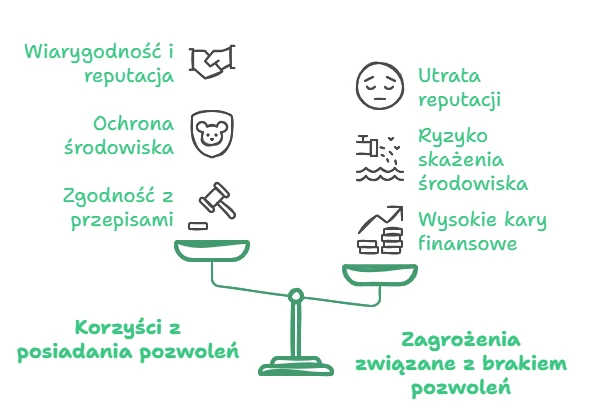
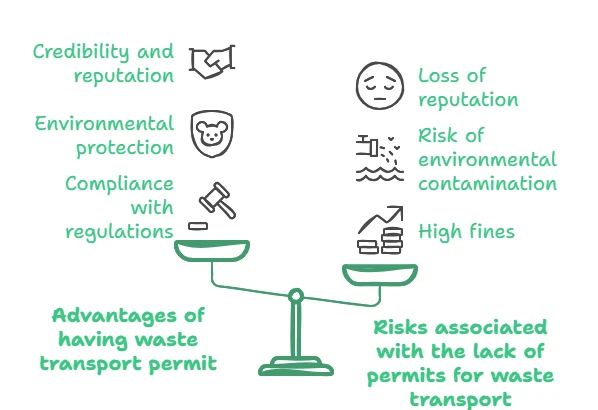
Advantages of having waste transport permits
- Compliance with legislation
Permits ensure that waste shipments are carried out in accordance with international regulations, such as the Basel Convention or European Union regulations. This avoids financial penalties and other legal consequences. - Environmental protection
Waste transport regulations require that cargo is properly secured, minimising the risk of spills, fires or other incidents that could lead to environmental contamination. - Credibility and reputation
Companies with the relevant permits gain credibility in the eyes of customers and business partners. Compliance with regulations demonstrates a company's responsibility and professionalism. - Operational security
Having permits requires compliance with certain standards, such as the use of appropriately adapted vehicles and trained personnel. This ensures that transport is carried out in a way that is safe for workers, local residents and the environment.
Risks associated with the lack of permits
- High financial penalties
When waste is transported without the appropriate permits, companies can be fined heavily. In the European Union, fines can range from a few thousand euros to as much as several million, depending on the seriousness of the breach. - Transport stops and delays
Lack of permits can result in transport being detained by customs. This generates additional costs for storage, inspection and the eventual return of the cargo to the place of shipment. - Risk of contamination of the environment and public health
Illegal waste transport often takes place without adhering to safety standards, increasing the risk of accidents, spills or inadequate waste disposal. Such situations can lead to long-term environmental damage and health risks. - Loss of reputation and trust
Disclosure that a company is transporting waste without permits can result in a loss of reputation and trust from customers and partners. In an era of increasing environmental awareness, consumers are increasingly choosing sustainable companies.
To sum up, possession of the relevant permits for the transport of waste is not only a regulatory obligation, but also a the key to conducting business in a safe, ethical and responsible manner. They enable companies to avoid numerous risks while promoting sustainable waste management in Europe and globally.

